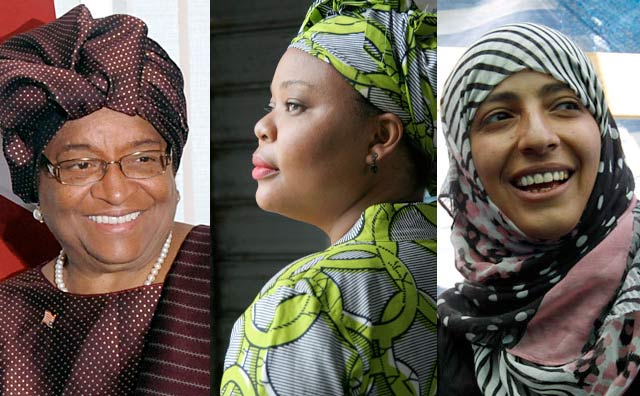 Do you ever ponder, in moments of bafflement at the world today, how differently our globe would spin if women ruled instead of men? It would be such an easy fix. Women are more nurturing, less interested in dominance, less violent due to estrogen instead of testosterone running through our veins, more collaborative. Right?
Do you ever ponder, in moments of bafflement at the world today, how differently our globe would spin if women ruled instead of men? It would be such an easy fix. Women are more nurturing, less interested in dominance, less violent due to estrogen instead of testosterone running through our veins, more collaborative. Right?
Who knows. Absolute power corrupts absolutely, whether you’re male or female. Women surely can be vicious and petty and vindictive. We’ve all had at least a taste of territorial female bosses, jealous older sisters, or 7th grade mean girls. Sometimes the dream of women ruling our countries, our courts and our governments seems more like wishful thinking. (Although there’s no arguing that more gender-blind policies would be appreciated, especially when it comes to promotions and pay grades, government subsidies of top-notch day care centers, court rulings and prosecution of rapists.)
But it sure makes a strong statement about women, and the current state of our world, that three women won this year’s Nobel Peace Prize.
Only 44 times between 1901 and 2011 have Nobel prizes been given to women. Marie Curie was the first, in 1903 and 1911 (yep, she won twice). Mother Teresa won hers in 1979. Never before in history have three women been awarded the prize simultaneously.
The Nobel Peace Prize 2011 was awarded jointly to three utterly amazing women: Ellen Johnson Sirleaf from Liberia, Leymah Gbowee, also from Liberia, and Tawakkul Karman from Yemen. They share the prize “for their non-violent struggle for the safety of women and for women’s rights to full participation in peace-building work” in West Africa and the Middle East.
The words chosen for the Nobel Committee press release are important:
“The Norwegian Nobel Committee has decided that the Nobel Peace Prize for 2011 is to be divided in three equal parts between Ellen Johnson Sirleaf, Leymah Gbowee and Tawakkul Karman for their non-violent struggle for the safety of women and for women’s rights to full participation in peace-building work. We cannot achieve democracy and lasting peace in the world unless women obtain the same opportunities as men to influence developments at all levels of society.
In October 2000, the UN Security Council adopted Resolution 1325. The resolution for the first time made violence against women in armed conflict an international security issue. It underlined the need for women to become participants on an equal footing with men in peace processes and in peace work in general.
Ellen Johnson Sirleaf is Africa’s first democratically elected female president. Since her inauguration in 2006, she has contributed to securing peace in Liberia, to promoting economic and social development, and to strengthening the position of women. Leymah Gbowee mobilized and organized women across ethnic and religious dividing lines to bring an end to the long war in Liberia, and to ensure women’s participation in elections. She has since worked to enhance the influence of women in West Africa during and after war. In the most trying circumstances, both before and during the “Arab spring”, Tawakkul Karman has played a leading part in the struggle for women’s rights and for democracy and peace in Yemen.
It is the Norwegian Nobel Committee’s hope that the prize to Ellen Johnson Sirleaf, Leymah Gbowee and Tawakkul Karman will help to bring an end to the suppression of women that still occurs in many countries, and to realise the great potential for democracy and peace that women can represent.”
To repeat:
“We cannot achieve democracy and lasting peace in the world unless women obtain the same opportunities as men to influence developments at all levels of society.”
Sometimes, wishful thinking is what the world needs.





